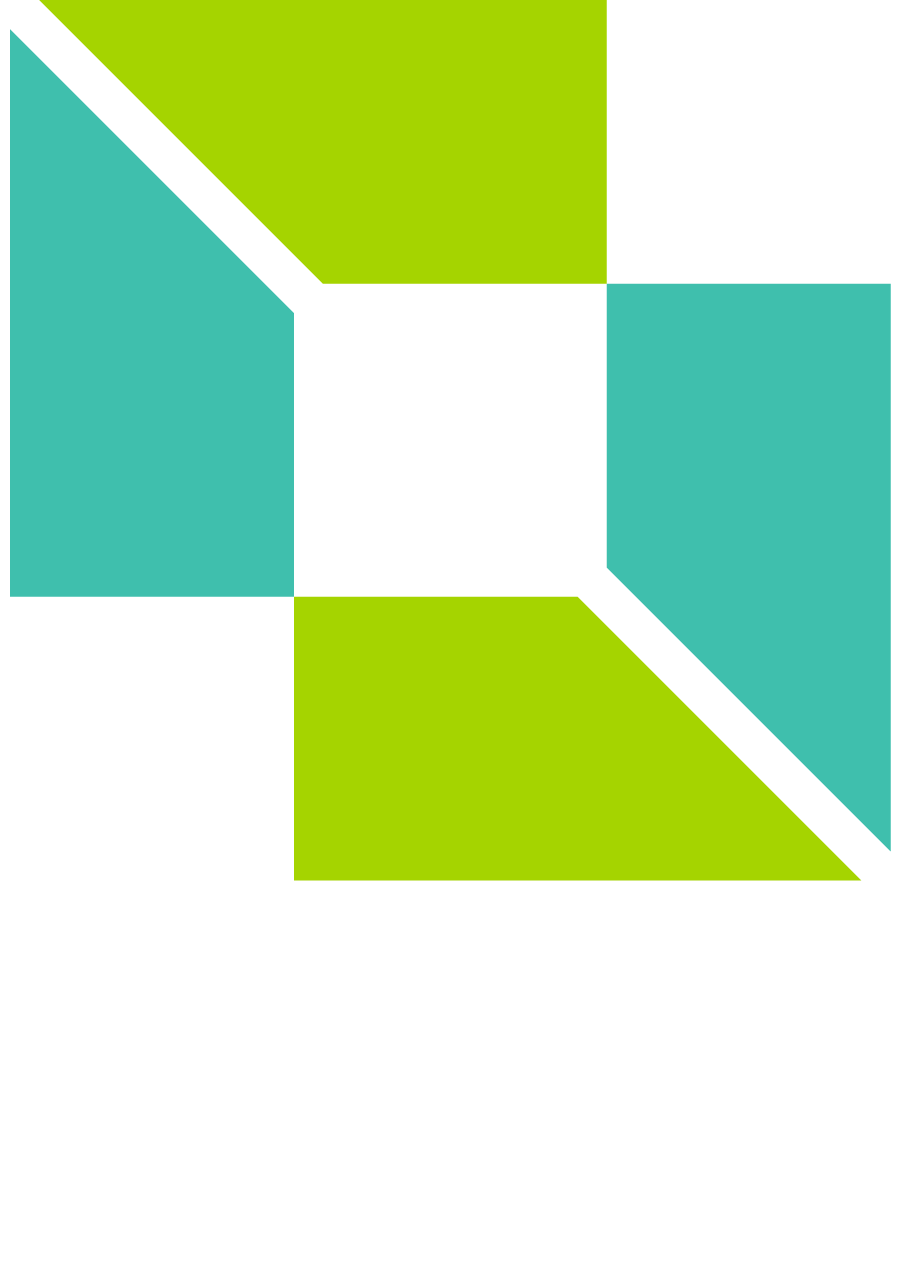“Human Resource Development Program Supporting a Knowledge-Intensive Society (DP)” 2024 Project Report Symposium Held
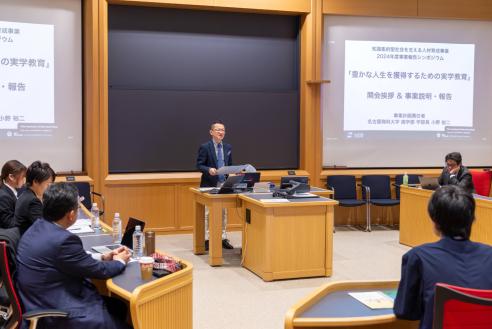
On Sunday, December 8, 2024, the School of Commerce at Nagoya University of Commerce & Business held a project report symposium to conclude the final year of the Ministry of Education, Culture, Sports, Science and Technology’s “Human Resource Development Program Supporting a Knowledge-Intensive Society.” This project has produced numerous outcomes, including case studies used in the case method, PR videos, marketing strategy proposals, and business plans for new ventures. Through the strategic selection and concentration of courses—offering the same class multiple times within a week—it realized an intensive learning environment that enhanced students’ motivation and retention.
In the first part of the symposium, Mr. Kenji Tadakuma, General Manager of the Business Development Office, New Business Planning Division at Toyota Motor Corporation, delivered a keynote speech titled “Hints for Living Authentically: Reflections from a Manager Driving New Business Development.” Drawing on his experience earning an MBA and his subsequent career, Mr. Tadakuma introduced real examples of new business development at Toyota, including a structured approach called “BE creation.” He emphasized the importance of “knowing yourself,” “maximizing your strengths,” and “trying things out,” stressing that motivation rooted in self-awareness is the true driving force behind taking on challenges.
The second part featured a panel discussion themed “Building an Ecosystem for Practical Education through Industry-Government-Academia Collaboration,” with participation from students, chamber of commerce members, corporate representatives, and faculty. Students spoke about the importance of output, communication challenges, and lessons learned from field experiences. Company representatives shared the significance of engaging with students sincerely and the difficulty of conducting in-depth discussions within limited timeframes. The chamber of commerce proposed that initiatives supporting local businesses could benefit both students and companies alike.
Mr. Tadakuma emphasized that creating such an ecosystem requires an “honest relationship” built on open-mindedness, mutual understanding, and awareness of each other’s challenges. He advised that setting KPIs for the positive outcomes expected from building the ecosystem and repeatedly testing hypotheses while reflecting on the purpose behind the efforts are essential.
This symposium served as a valuable opportunity to reflect on the four years of achievements and to reconsider the future direction of practical education. The School of Commerce is expected to further develop the expertise and networks it has cultivated thus far.
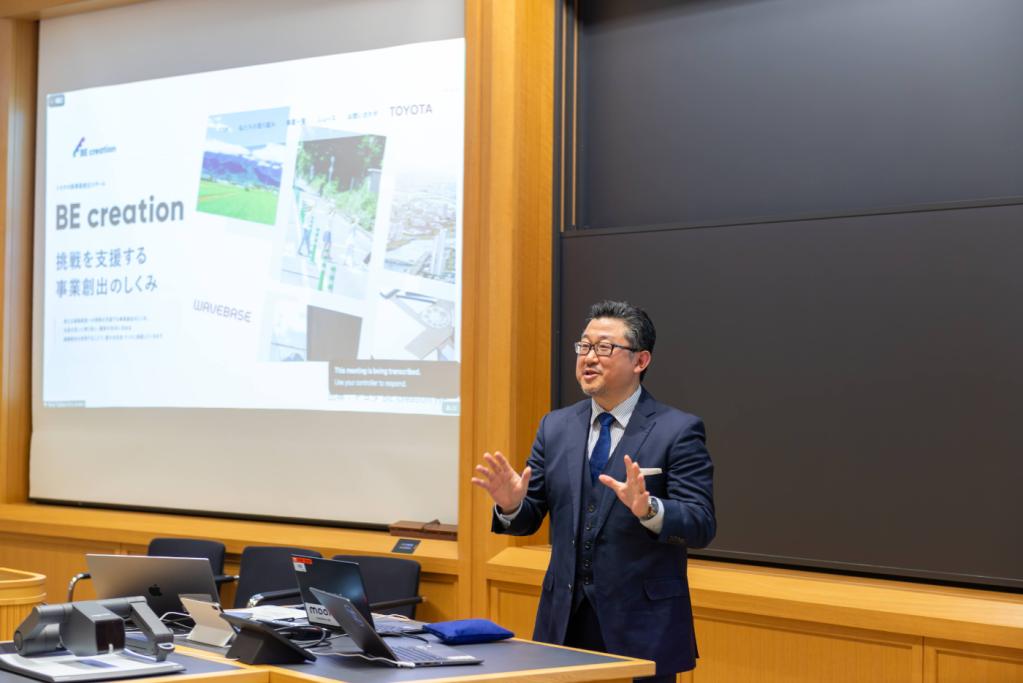
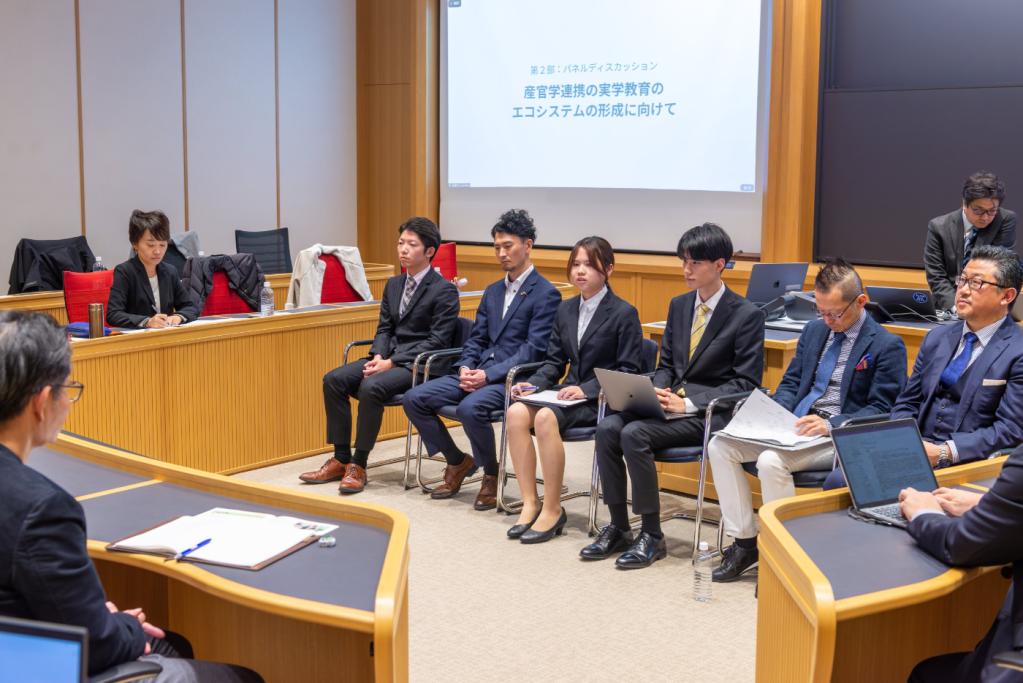
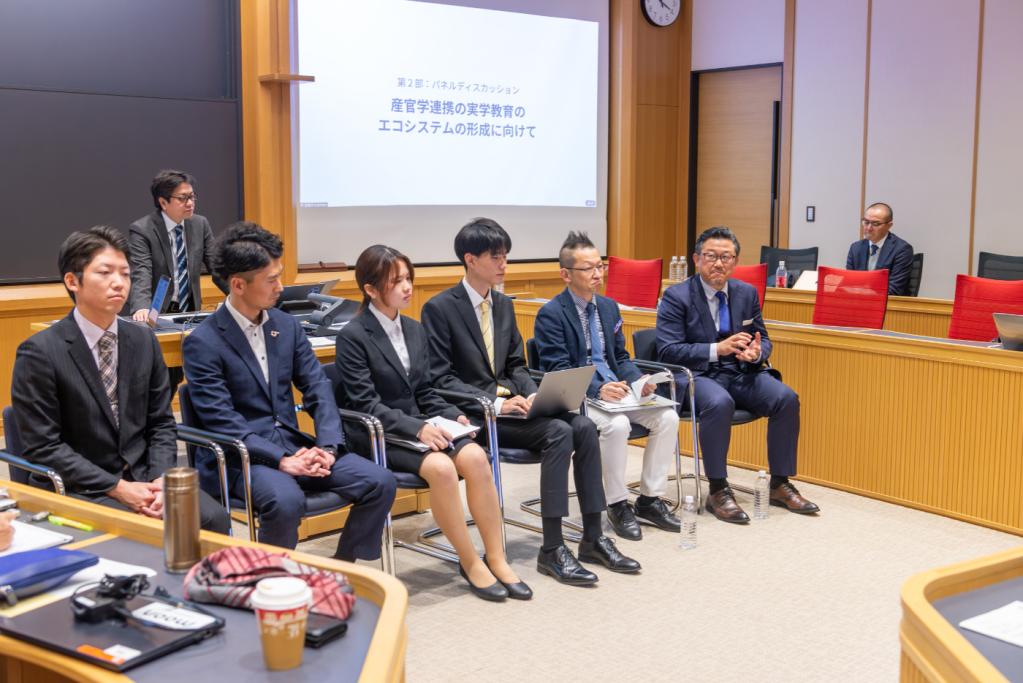
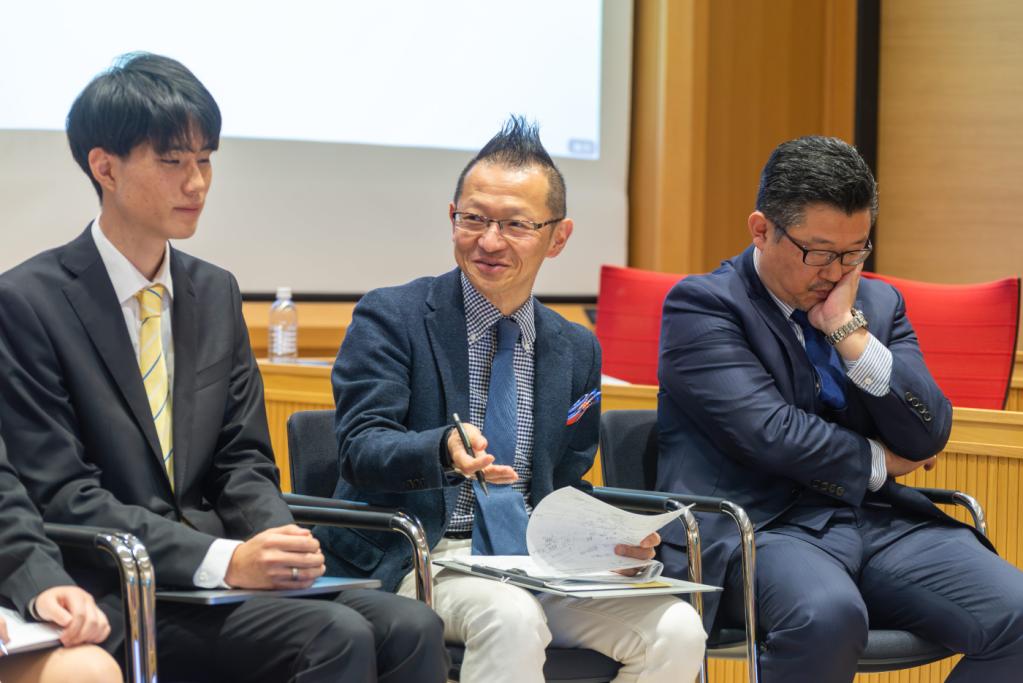

 Download
Download
 Infosession
Infosession
 Application
Application
 Open Campus
Open Campus
